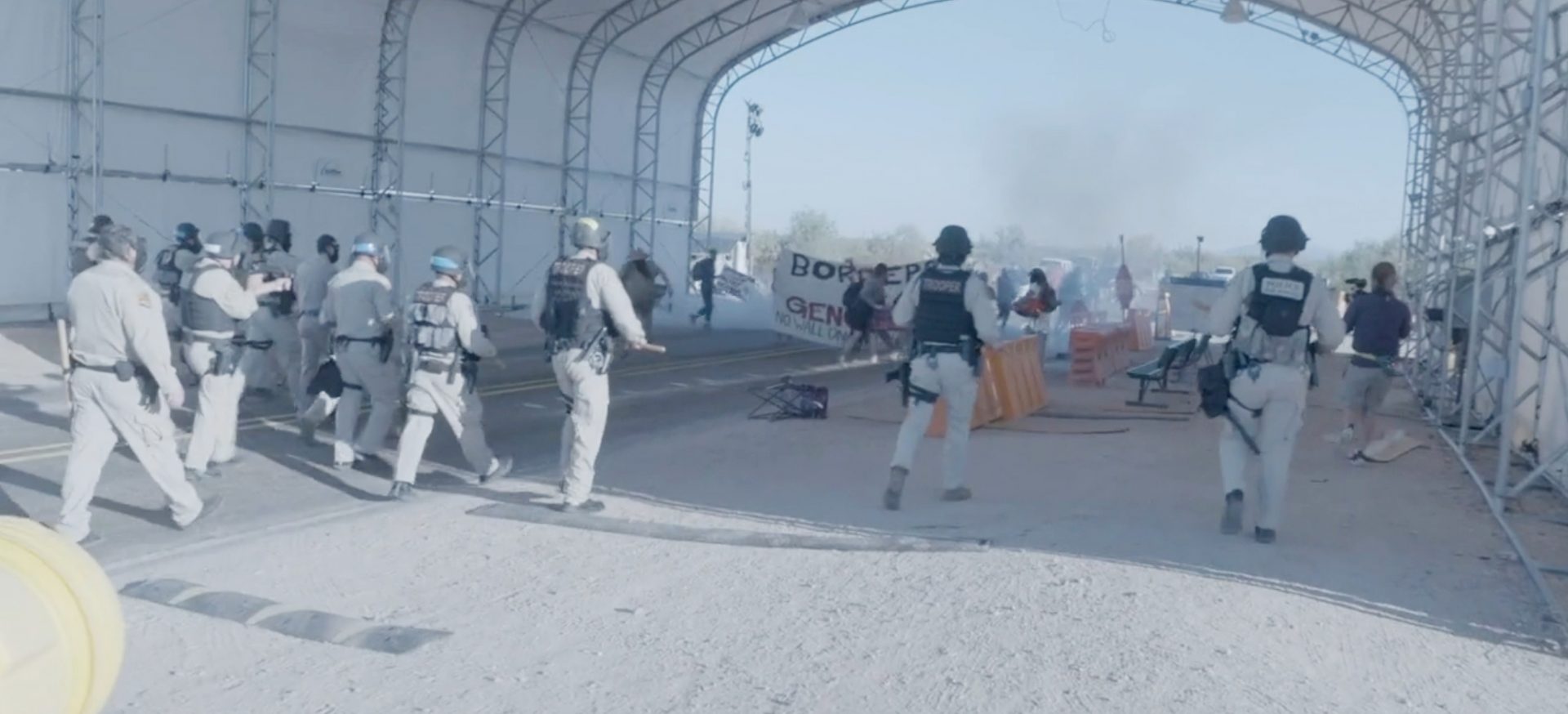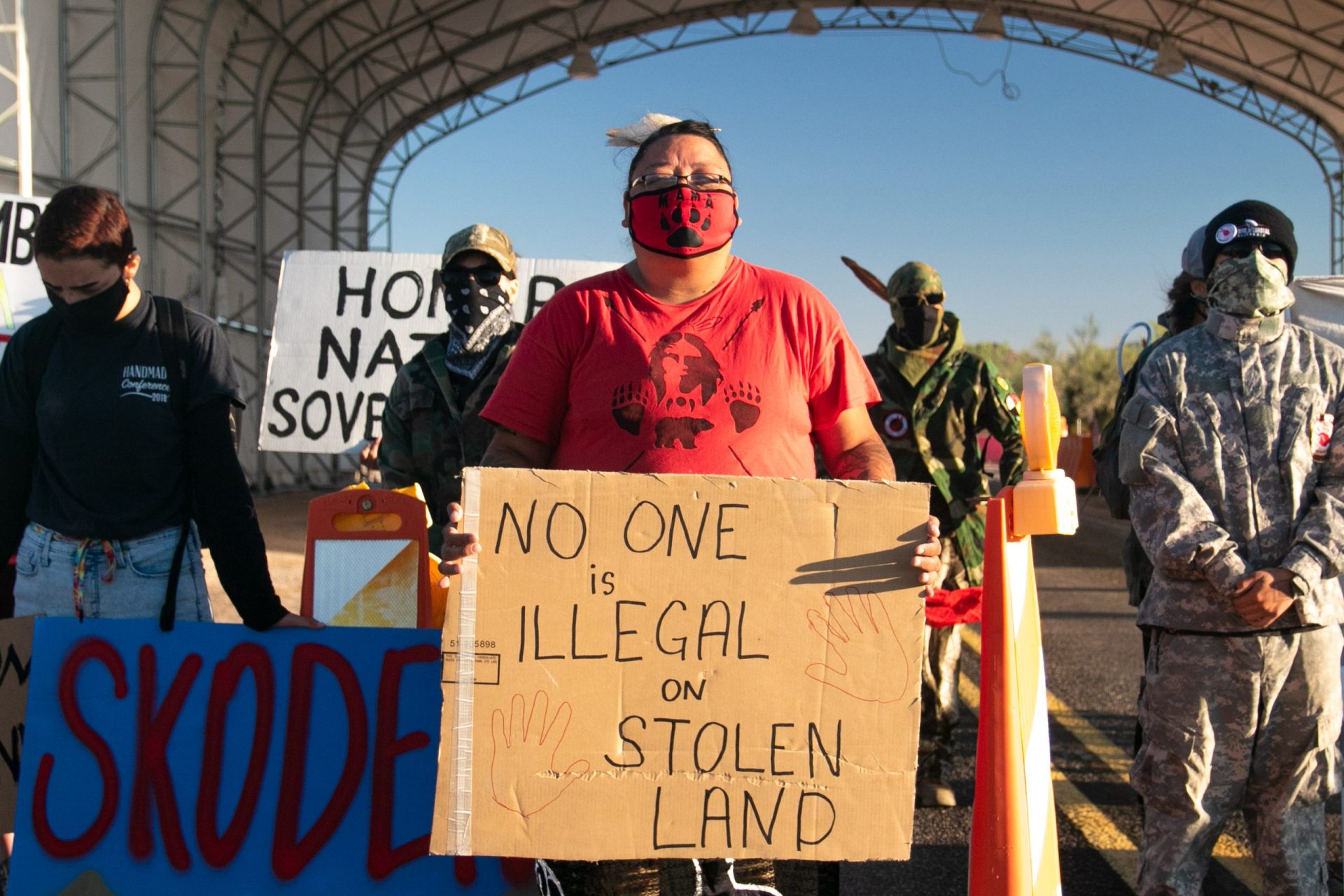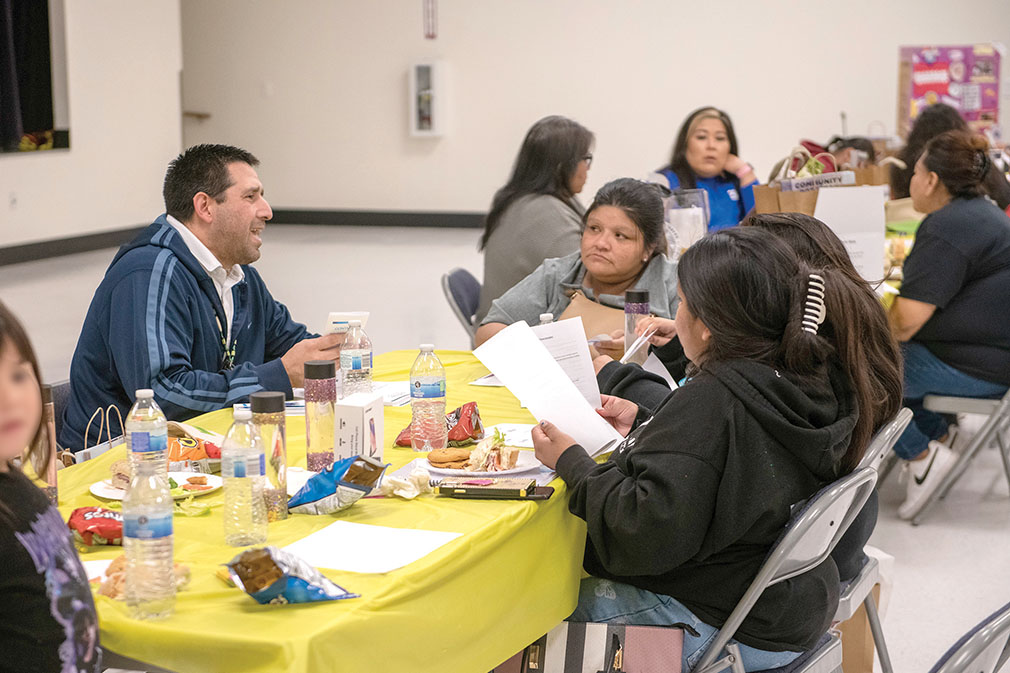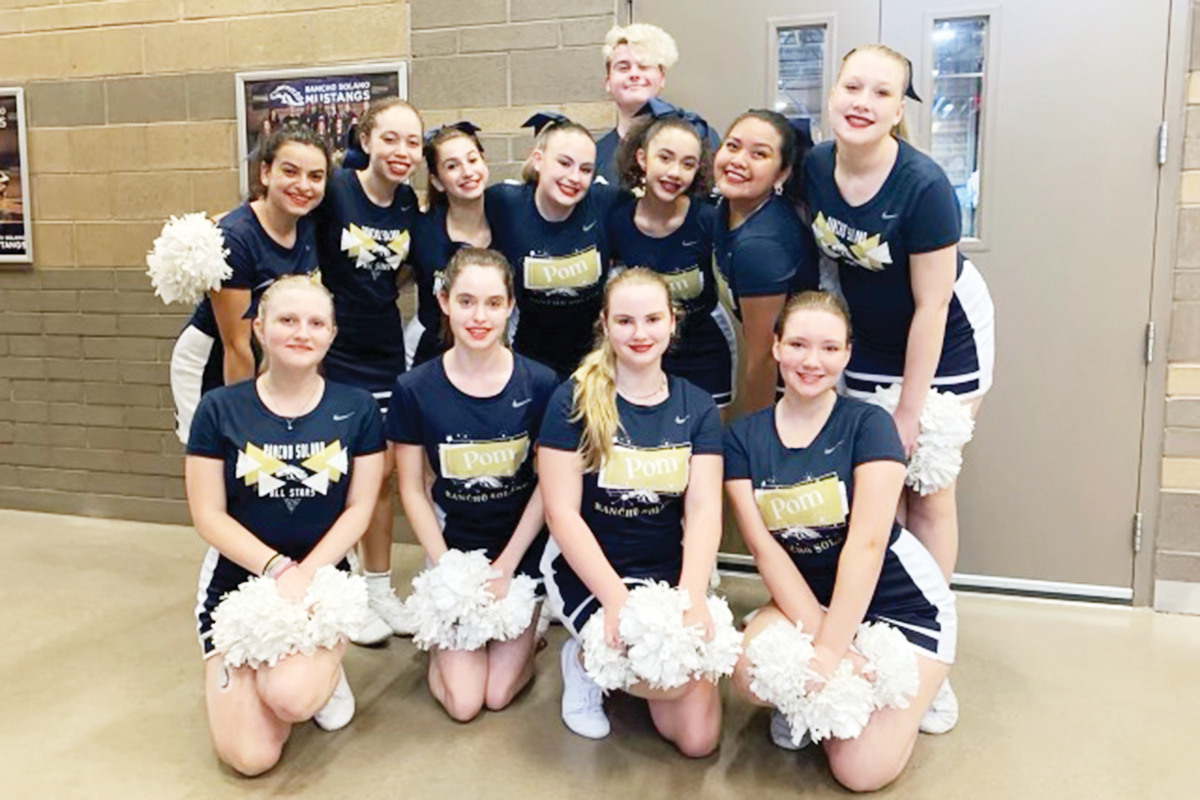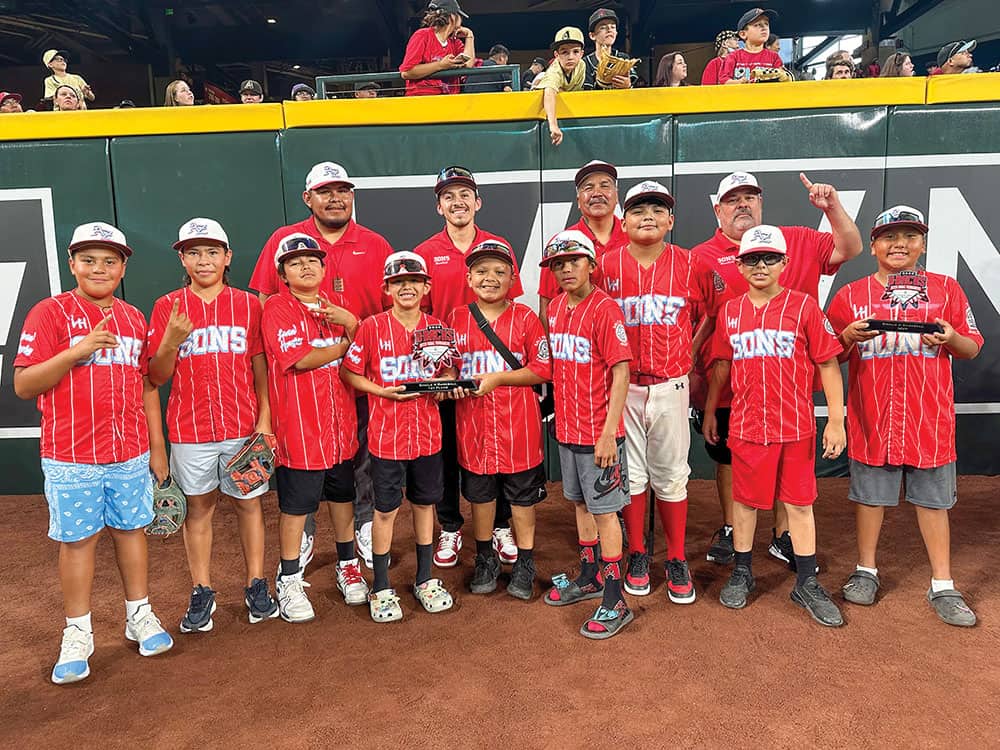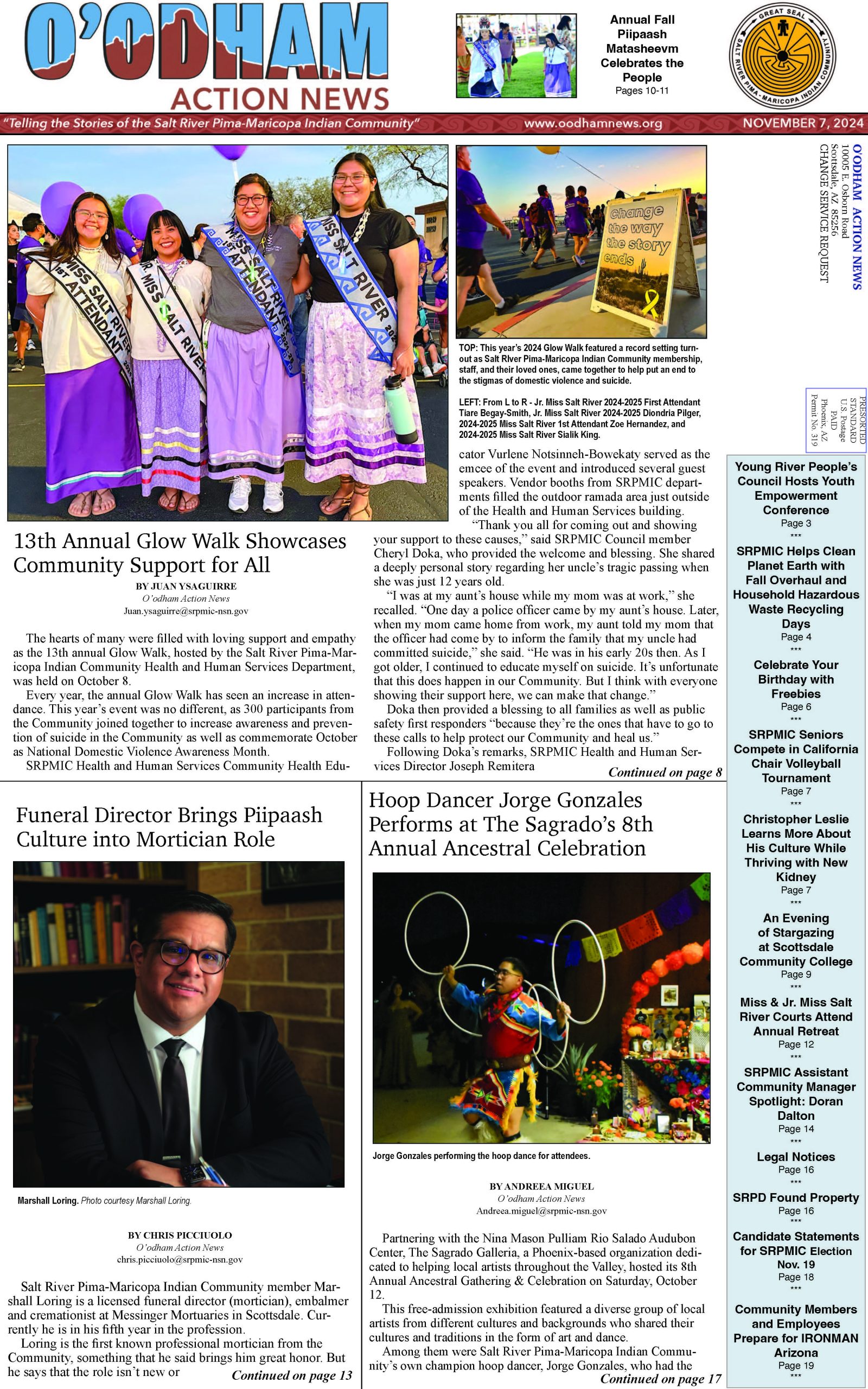VIEWS: 4312
November 18, 2020Onk Akimel Kikam SRPMIC Members Condemn Desecration of Quitobaquito
On Indigenous Peoples Day, Monday, October 12, O’odham Action News reported on the violence perpetrated by Arizona Department of Public Safety troopers in riot gear against O’odham land and water protectors who were holding a peaceful demonstration in prayer and a spiritual ceremony on unceded Hia-Ced land north of Lukeville, Arizona.
Videos shared on Vimeo, Instagram and Twitter show different angles of AZDPS troopers firing tear gas and rubber bullets at the protectors, who were already running away from the tear gas and projectiles, toward their vehicles. One of the videos shows troopers approaching the vehicles to take the protectors out to arrest them on the pavement.
A total of 11 protectors were arrested that day, which included three minors. After an evening of peaceful action, phone calls and demands for their release, O’odham people and allies were able to secure the release of all who were arrested.
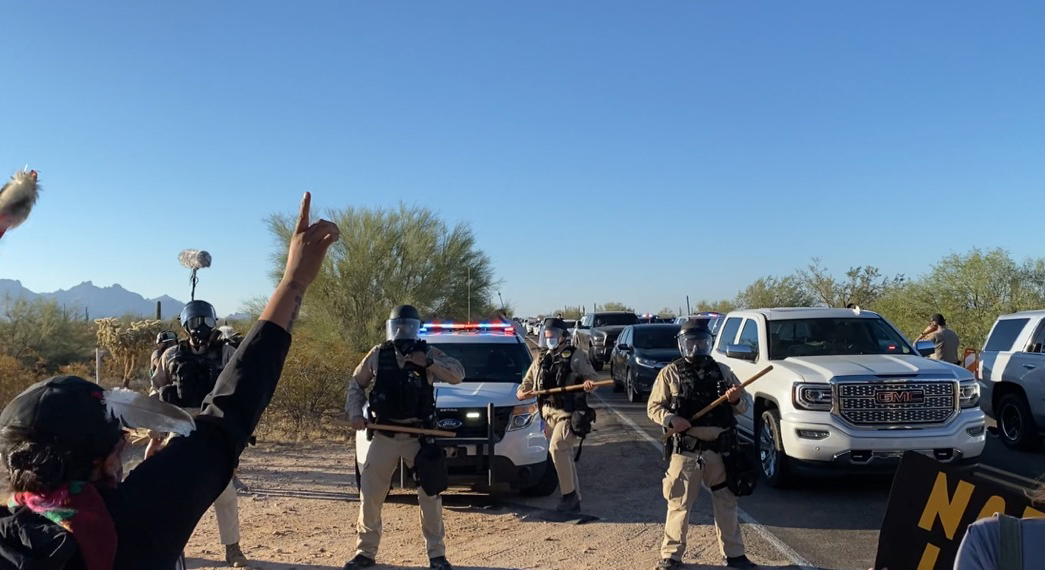
The Border Patrol said in a statement that no injuries were reported; however, the group O’odham Anti Border Collective told O’odham Action News that one person sustained burns on their hand from moving a hot tear gas canister out of the way, and another was shot at close range with a rubber bullet while he was in the middle of singing. According to the group, both are still healing from the injuries.
The news of what transpired at the checkpoint did not reach the national spotlight; however, the story has been shared within local Native American communities and O’odham sister tribes by people who were present and those who were able to watch the situation unfold through information and videos posted on social media outlets.
Grassroots organizing of groups such as O’odham Anti Border Collective and Defend O’odham Jewed were born out of a situation where O’odham people felt as though they had no other choice but to defend their backyard and own their power and heritage in connection to the land. The pattern of giving and taking back land by executive order still continues to this day, and the Hia-Ced O’odham, with support from Tohono and Akimel O’odham relatives and allies, felt their only recourse was to bring attention to these issues by holding the peaceful action at the Border Patrol checkpoint on State Route 85, where the violence against land and water protectors occurred.
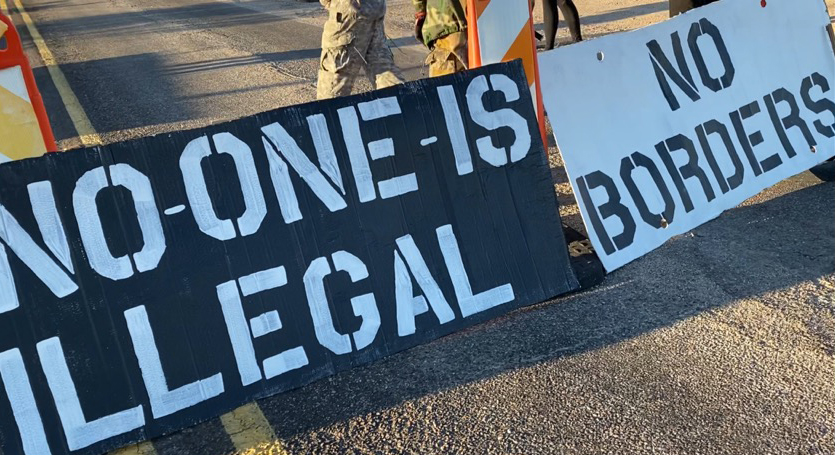
An O’odham Anti Border Collective representative who goes by the name “G:ok” (which means “two” in O’odham) gave their side of what happened on October 12.
“We celebrated [Indigenous Peoples Day] by reclaiming our rightful land as Indigenous O’odham peoples. We stood in unity along with Indigenous and non-Indigenous allies and sang songs and offered words. We requested to [the troopers] to remove their violence from the land,” said G:ok.
“There were state troopers gearing up and they had their batons out; they responded to us really aggressively in a violent way, and it turned quickly. They released the tear gas while we started to move back, still in song. They continued to move forward with force.”
An elder-led grassroots Indigenous organization from the Salt River Pima-Maricopa Indian Community, Onk Akimel Kikam (kikam means “residents” in O’odham) released a statement on October 19 condemning what they feel is the desecration of A’al Wappia (Quitobaquito Springs), as well as the violence at the Border Patrol checkpoint on State Route 85.
The statement read, “The Onk Akimel Kikam condemn Arizona Department of Public Safety’s use of chemical agents and projectiles against the Hia-Ced O’odham land and water protectors and their allies. The Onk Akimel Kikam stand in solidarity with the Hia-Ced land and water protectors.”
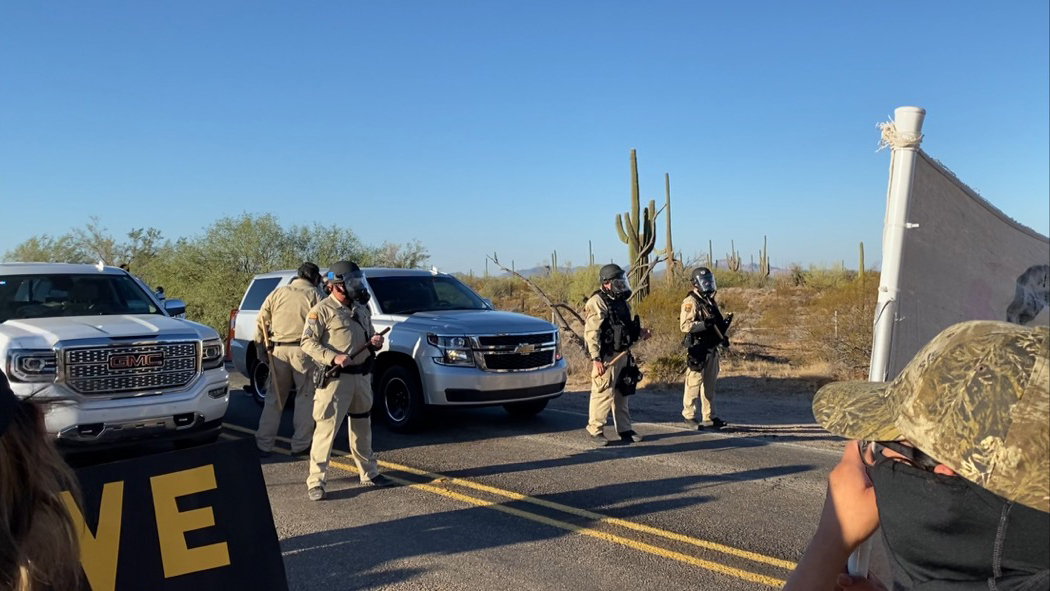
Chuvak “Cloud Feather Mist” Montiel-Nunez, an enrolled member of SRPMIC and niece of Onk Akimel Kikam elder member Meldon Fulwilder, spoke for herself and her family and was then asked respectfully to speak on behalf of the Onk Akimel Kikam about the situation. Montiel-Nunez began by peeling back the layers of what led up to the showdown on Indigenous Peoples Day, starting with President Donald Trump’s implementation of a border wall and how Onk Akimel Kikam feels about it.
“All of the anti-immigration rhetoric and instilling fear into [President Trump’s] base made it much more acceptable and feasible by the people who live especially in these border states to accept the desecration of sites protected by their own government,” she said. “[These are] sites protected by the National Park Service, like the Organ Pipe National Monument. You’re talking about areas that [the NPS] considered as national sites to be preserved and reserved with some kind of sanctity. There is a complete disregard of all the environmental and religious laws that are in place to protect sites like Quitobaquito.”
Montiel-Nunez recalls a story about how the saguaros are the reincarnation of warriors who have passed. If the saguaro has arms coming off of it, those arms are the warriors’ wives who passed after them. With the wall coming through these saguaro cacti, Montiel-Nunez describes this desecration of the O’odham Himdak (way of life) as literally killing reincarnated warriors and their wives who were meant to stand with the warriors in the afterlife.
“For me, as an O’odham woman, this is not just a desecration of the flora or the fauna, this is beyond comprehensible. I can’t even put it into words how unfathomable it is to me that people are OK with this, that people support this,” she said.
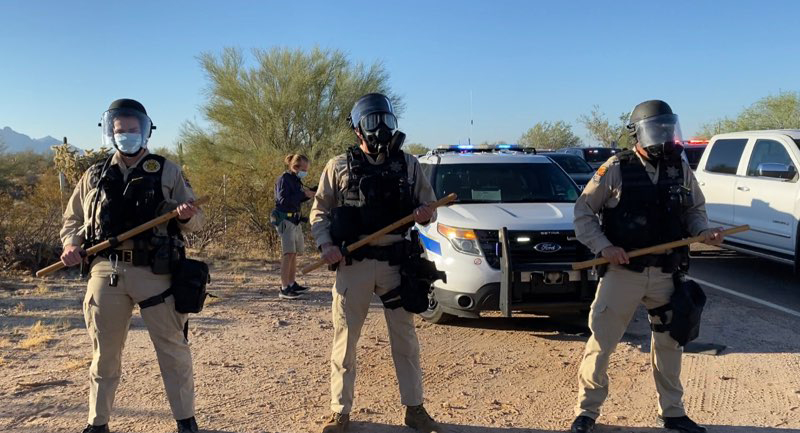
These sacred places on ancestral Hia-Ced O’odham homelands are rapidly disappearing on a daily basis as the border wall construction continues and the NPS cuts off access to Quitobaquito Springs. Onk Akimel Kikam feels as though the NPS is just as guilty of fear and intimidation tactics as the Border Patrol and calls this “modern-day cultural genocide.” There are burial sites at Quitobaquito and there is no access to the springs to honor the dead.
When asked about what she would say to someone, O’odham or not, who hasn’t understood or felt close to what is going on at the Arizona-Mexico border, Montiel-Nunez took a deep breath and a long pause. She began a heartfelt prayer, as though the person was in front of her and she was helping them to connect to that part of their mind and soul that will never forget who they are or where they come from.
The same question was asked to G:ok, who encourages O’odham people to look into the history of the lands, other border tribes and what the way of life was before the borders were created. “I come from a generation who didn’t have to go through a checkpoint. We say that we didn’t cross the border, but the border crossed us. Talk to your elders about these stories that they hold onto. They can remember the times when people were more connected to the land and one another. The stories are alive and this border has kicked up a lot of our history.”
